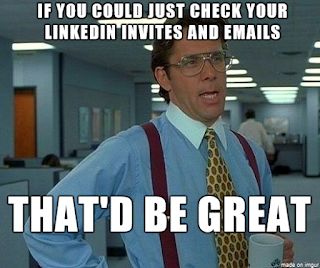Networked Knowledge - A Case Study Example
There are many ways in which companies can promote networked knowledge - the sharing of curated information from which employees can learn - in the workplace. As simple example can be found on a piece of technology which has been in place for some time now - a company intranet site. Intranet sites are simply "internal" web sites used by companies to host files and web pages which are to be accessed strictly by those with granted permissions (i.e., employees and managers). An example of a basic intranet site would be a collection of downloadable training manuals and reference items for a call center. The agents would have access to these materials on the site, and would be able to upload materials here as well. As a practical example of using an intranet to support networked knowledge activities, a company might decide to build a Knowledge Base (KB) - an online repository, similar to a library, which provides access to a catalog of case studies, articles, a...


